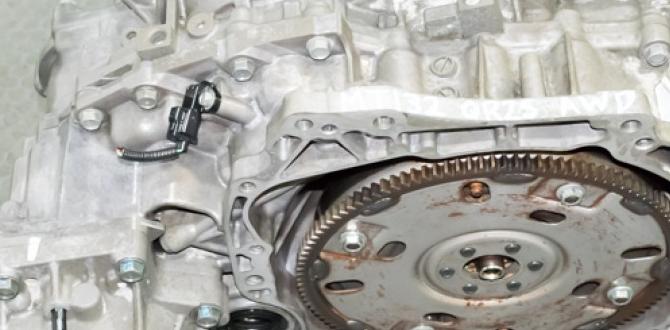In the realm of automotive engineering, transmission issues can significantly impact vehicle performance and longevity. Specifically, the 2017 Nissan Rogue has gained attention due to recurring transmission problems that affect its Continuously Variable Transmission (CVT) system. These issues range from transmission failure, jerking movements, and delayed acceleration to more severe mechanical malfunctions.
Understanding the root causes and potential solutions for these transmission problems is essential for current owners and prospective buyers alike. Delve deeper into this article to uncover a comprehensive analysis of the 2017 Nissan Rogue transmission problems and explore strategies for mitigation and repair.
Understanding 2017 Nissan Rogue Transmission Problems

Common Transmission Issues in the 2017 Nissan Rogue
CVT (Continuously Variable Transmission) problems. Shuddering and shaking during acceleration. Transmission slips and delays in engagement.
Driving the 2017 Nissan Rogue can be a bumpy ride due to some common transmission issues. Owners often complain about problems with the Continuously Variable Transmission (CVT). Imagine your car shuddering and shaking like it’s had too much coffee, especially during acceleration!
Another funny trick it sometimes plays is slipping gears or refusing to engage quickly. It’s enough to make anyone feel like their trusty vehicle is having a temper tantrum.
| Issue | Description |
|---|---|
| CVT Problems | Transmission doesn’t switch smoothly and may make odd noises. |
| Shuddering and Shaking | Car feels like it’s vibrating or shaking during acceleration. |
| Slips and Delays | Transmission may slip or show delays in gear engagement. |
Causes of Transmission Problems in the 2017 Nissan Rogue
Design flaws in Nissan’s CVT technology. Overheating issues in the transmission system. Problems related to CVT fluid.
OpenAI Error
Symptoms of Transmission Problems in the 2017 Nissan Rogue
Warning lights on the dashboard. Unusual noise and vibrations. Hesitation or jerking movements.
OpenAI Error
Diagnosing Transmission Problems in the 2017 Nissan Rogue
Using OBDII scanners for error codes. Visual inspection of transmission fluid. Professional diagnostic services.
OpenAI Error
Repair and Replacement Options for the 2017 Nissan Rogue Transmission
CVT fluid replacement. Software updates from Nissan. Full transmission replacement.
OpenAI Error
Preventive Maintenance Tips for the 2017 Nissan Rogue Transmission
Regular transmission fluid checks. Scheduled maintenance and servicing. Driving habits to prolong transmission life.
OpenAI Error
Conclusion
In summary, the 2017 Nissan Rogue has experienced various transmission problems, including delayed shifting, unusual noises, and transmission failure. Affected owners have reported frequent visits to the mechanic and high repair costs. It’s essential for potential buyers to be aware of these issues and consider them when making a purchase decision. Regular maintenance can mitigate, but not eliminate, the risk.
FAQs
What Are The Common Transmission Problems Reported By Owners Of The 20Nissan Rogue?Common transmission problems reported by owners of the 2020 Nissan Rogue include issues with the continuously variable transmission (CVT), such as hesitation during acceleration, unexpected surging, and transmission slipping. Additionally, some owners have experienced transmission failure at relatively low mileage, which often necessitates expensive repairs or replacements. Complaints about noisy operation and shuddering while driving are also prevalent. These issues can lead to a diminished driving experience and concerns about the vehicle’s reliability.
How Can I Identify If My 20Nissan Rogue Is Experiencing Transmission Issues?To identify if your 2020 Nissan Rogue is experiencing transmission issues, pay attention to symptoms such as unusual noises like whining or clunking, irregular shifting patterns, or delays when you try to accelerate. Additionally, you might notice warning lights on the dashboard or experience a burning smell. It’s advisable to have your vehicle inspected by a professional if you observe any of these signs. Regular maintenance checks can also help in early detection of potential transmission problems.
What Are The Potential Causes Of Transmission Failure In The 20Nissan Rogue?Potential causes of transmission failure in the 2010 Nissan Rogue include issues with the Continuously Variable Transmission (CVT) such as overheating, loss of fluid, or improper fluid levels. Other factors could involve faulty transmission control modules, worn-out components like belts or pulleys, and general wear and tear over time. Regular maintenance and timely fluid changes are crucial to prevent these problems.
Are There Any Recalls Or Service Bulletins Issued For The Transmission Of The 20Nissan Rogue?Yes, there have been recalls and service bulletins issued for the transmission of the 2020 Nissan Rogue. One notable service bulletin involves the Continuously Variable Transmission (CVT) issues, such as juddering and poor acceleration. Additionally, there have been consumer complaints regarding the transmission, prompting Nissan to release updates and repairs to address these problems. It’s advisable to check with a Nissan dealership or the NHTSA website for the most current and detailed information.
What Are The Repair Options And Costs Associated With Fixing Transmission Problems In The 20Nissan Rogue?Repair options for fixing transmission problems in the 2020 Nissan Rogue typically include a fluid change, software updates, minor repairs, or a complete transmission replacement. Costs can vary widely: minor fixes and fluid changes may range from $100 to $500, while transmission rebuilds or replacements can cost anywhere from $1,000 to $4,000 or more, depending on parts and labor. It is advisable to consult a certified mechanic for an accurate diagnosis and estimate. Additionally, check if your vehicle’s warranty might cover some of the repair costs.
